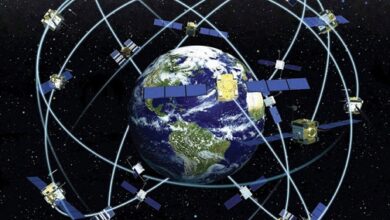What is Encyclopedia Origin Characteristics purpose and types
Encyclopedia
Encyclopedia is a type of reference work, that is, a type of book or set of books that are consulted to obtain punctual, precise and autonomous information on a certain topic. An encyclopedia tries to summarize or compile the totality of human knowledge, organized alphabetically and described in an objective, impartial and universal way, in such a way that it can be consulted when some specific information is needed.
Naturally, the totality of human knowledge does not fit in any one book or set of books, not even in the many volumes that make up the great encyclopedic projects, such as the famous Encyclopedia Britannica. However, encyclopedias make an attempt, systematically and coherently organizing the main topics and referents for consultation, whether on a specific area of knowledge or on any type of matter.
The name “encyclopedia” comes from the Greek words En kyklos (“within the circle”) and paideia (“education”), with which they referred in Greek antiquity to the set of books and works that a child had to read during their formal instruction, to acquire the minimum necessary knowledge . In this sense, the term encyclopaedia was created in Latin , translatable as “compendium of knowledge”, and which was later inherited by the Romance languages.
Encyclopedias are an important part of the informative and informative resources available to any individual, that is to say, they are works that anyone can consult to learn about a subject or subject, and that, therefore, play a fundamental role in the preservation and knowledge circulation.
With the development of computers , encyclopedias in physical format gave way to virtual encyclopedias , which were initially hosted on supports such as CD-ROMs. Today, these encyclopedias are websites, allowing users to access information on a wide variety of topics instantly and simply.
Origin of the encyclopedia
Encyclopedias have very diverse backgrounds in ancient cultures , since the invention of writing allowed human beings to preserve and organize knowledge for future generations for the first time. In fact, there are many compilations, indexes or summaries of various subjects made in antiquity and in the Middle Ages , as a way of gathering literary works or writings that had something in common.
However, the first notion of a general and didactic encyclopedia arose in the 18th century , as part of the educational and informative work that the French Enlightenment considered important to combat ignorance and superstition inherited from the Christian Middle Ages. The pioneers in these matters were the so-called “encyclopedists”, such as the British Ephraim Chambers, creator of the Cyclopedia or Universal Dictionary of Arts and Sciences of 1728, one of the first encyclopedias in history.
However, the most important encyclopedic project was the Encyclopédie by Denis Diderot and Jean le Rond d’Alembert , who brought together a select group of 140 thinkers of the time to design what they hoped would be the greatest popularization project in history, the Encyclopedia , or Reasoned Dictionary of Sciences, Arts and Trades . Writers such as Voltaire and Francis Bacon collaborated on this project, and the encyclopedia was inspired both by the tree of human knowledge proposed by Bacon, and by René Descartes’ Discourse on Method .
Characteristics of an encyclopedia
In general, encyclopedias are characterized by the following:
- They are books or sets of books, in which human knowledge or a portion of it is addressed from an objective, impartial , methodical and organized (usually) alphabetically.
- They can be of a general or specific type (a specific area of knowledge, such as medicine).
- They do not contain argumentative information, opinions or any other expression of subjectivity or debatable point of view. Instead, they can help themselves with charts, images, graphs, and other types of visual support.
- They are updated from time to time , either to enlarge their content, correct errors or update the information.
What are encyclopedias for?
Encyclopedias have an informative purpose: they provide the reader with clear, correct, objective and specific information on what is sought between its pages. These are educational and quick reference books: no one reads an encyclopedia from cover to cover, but opens it and goes directly to the content that interests them. In that sense they operate in the same way as dictionaries and glossaries .
On the other hand, encyclopedias play an interesting historical role: they reflect the state of knowledge and culture at a given time and age . If we consult an encyclopedia from the last century, for example, we can get an idea of the things that at that time were taken for granted, objective and demonstrable; many of them will no longer be for us.
types of encyclopedia
Encyclopedias are usually of two types: general and thematic.
- The general encyclopedias address, within the limits of the possible, the totality of human knowledge, or at least its main aspects and those that are most frequently consulted by the general public. For example, school encyclopedias or encyclopedias with many volumes that in the past were bought to keep at home. On the Internet , initiatives such as Wikipedia are also encyclopedias of this type.
- Thematic encyclopedias address a specific area of human knowledge and are limited to it. Therefore, they are useful for studying certain specific areas of knowledge and can be more detailed and specific, since they have less information to cover. For example, medical, animal or natural science encyclopedias.

